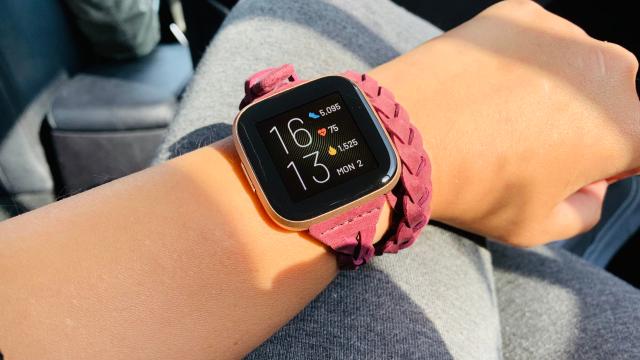European regulators are examining Google’s deal to acquire Fitbit, even seeking perspective from healthcare providers and the company’s rival wearable device makers. This appears to be making Google sweat a little bit, according to a Reuters report, because the company may be planning to offer a binding pledge not to use Fitbit health data to target ads.
Google to regulators, in short: “We’re only in it for the hardware, we swear!”
Google announced its $US2.1 ($3) billion acquisition of Fitbit last November, but it hasn’t exactly been a quick and easy merger. At the time of the acquisition, Google Senior Vice President Rick Osterloh said the company wants Fitbit as “an opportunity to invest even more in Wear OS as well as introduce Made by Google wearable devices into the market.”
But Google critics and privacy advocates are concerned that the company will use the wealth of data Fitbit collects, including information about heart health, sleep, menstrual cycles, and more, as part of Google’s core ad-targeting business. In February, the European Data Protection Board expressed concern about the deal’s privacy risks to consumers. The deal is also under review by the U.S. Department of Justice and Australian regulators.
Google has had fair warning from the EU that its Fitbit acquisition wasn’t a done deal, and the company has until July 13 to offer concessions to European Commission regulators and make the case that the purchase isn’t harmful to consumers. The commission is slated to decide Fitbit’s fate on July 20.
Google has said since announcing the acquisition that it wouldn’t use Fitbit data in its ad business.
“The wearables space is highly crowded, and we believe the combination of Google’s and Fitbit’s hardware efforts will increase competition in the sector, benefiting consumers and making the next generation of devices better and more affordable,” a Google spokesperson told Reuters. “Throughout this process we have been clear about our commitment not to use Fitbit health and wellness data for Google ads and our responsibility to provide people with choice and control with their data.”
But it’s one thing for a company to swear up and down that it won’t use customer data in ways that would compromise privacy. It’s another thing entirely for that company to make a legally binding pledge to that effect to avoid an antitrust investigation.
